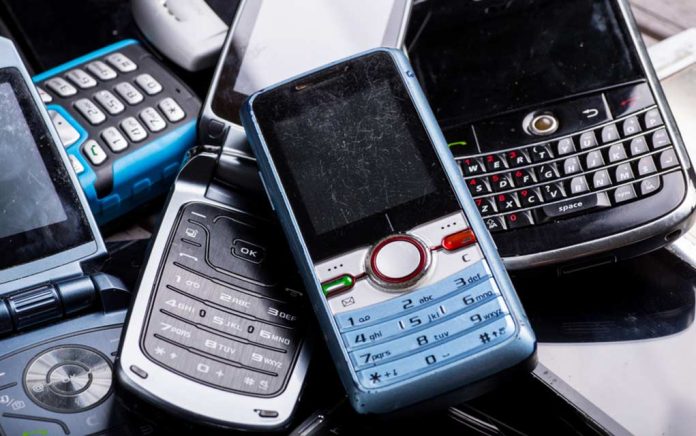
(HealthyResearch.com) – Cell phones are everywhere. According to Statistica, 1.56 billion smartphones were sold across the world in 2018 alone. And when an old phone goes the way of the Commodore 64, it can’t just go in the trash. Here’s why.
The Dangers of eWaste
Electronic waste is an ever-increasing problem, with used cell phones making up the bulk of it. One study found the average cell phone contained over 150 metals and other materials, with smartphones containing at least 260. Some of those are toxic heavy metals, says Planet Green.
In their report on the dangers of cell phone waste, they share that several toxic compounds wind up in dumps, eventually leaching out into the environment. Causes International offers details on some of the most dangerous offenders:
- Hexavalent chromium can damage the kidneys and liver. It may also contribute to some cases of asthma.
- Beryllium can cause lung damage.
- Cadmium damages the kidneys and bones.
- Lead is toxic to the nervous system and can damage the kidneys.
- Mercury can be harmful to the brain and kidneys.
All of these can pose environmental hazards and build up in the human body. And considering most people replace their phone at least once every 20 months, with fewer than 17% of the discards being recycled, a lot of heavy metals are winding up in landfills. About 70% of toxic waste in US landfills is composed of electronics.
The subsequent pollution can end up in nearby water sources, putting aquatic life in danger. From there, toxins can make their way into the soil of farmland, which can potentially contaminate food sources. When burned, electronics can release cancer-causing compounds into the very air we breathe.
Proper Cell Phone Disposal
Recycling a cell phone is easier than most people realize, and it doesn’t have to cost a thing. The EPA offers a list of companies consumers can contact directly about donating or recycling their electronics. Best Buy also offers free recycling of all cell phone brands nationwide. Make sure to remove all personal information, SIM card and memory card (if there is one) before recycling a cell phone to keep personal info out of hackers’ hands.
We’re a nation of heavy consumers, so it’s important that we each do our part to keep the waste to a minimum. As tempting as it may be to toss old, useless phones, there is a better way. Recycle old electronics to help keep landfills hazard-free.
~Here’s to Your Health & Safety!
Copyright 2021, HealthyResearch.com
















